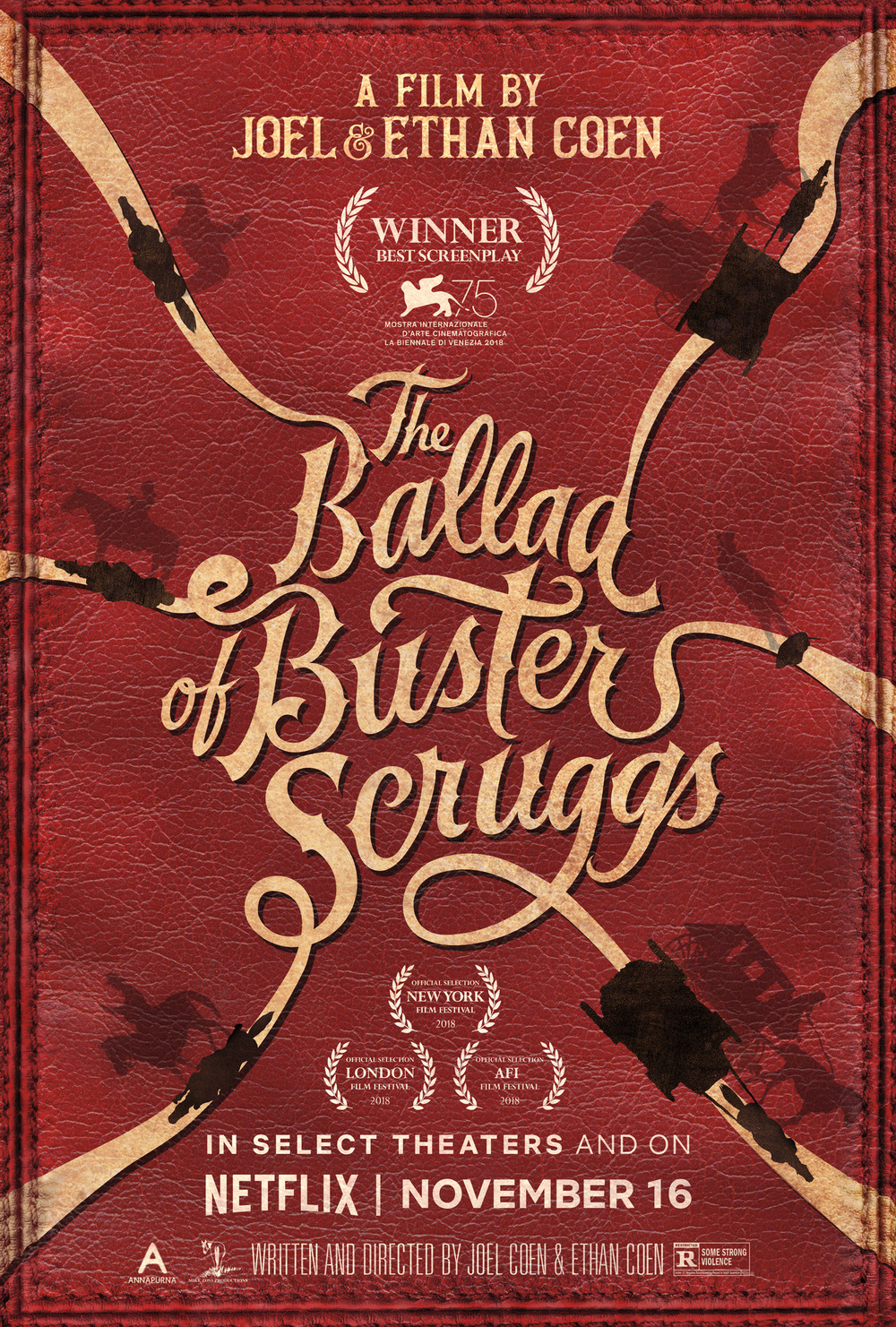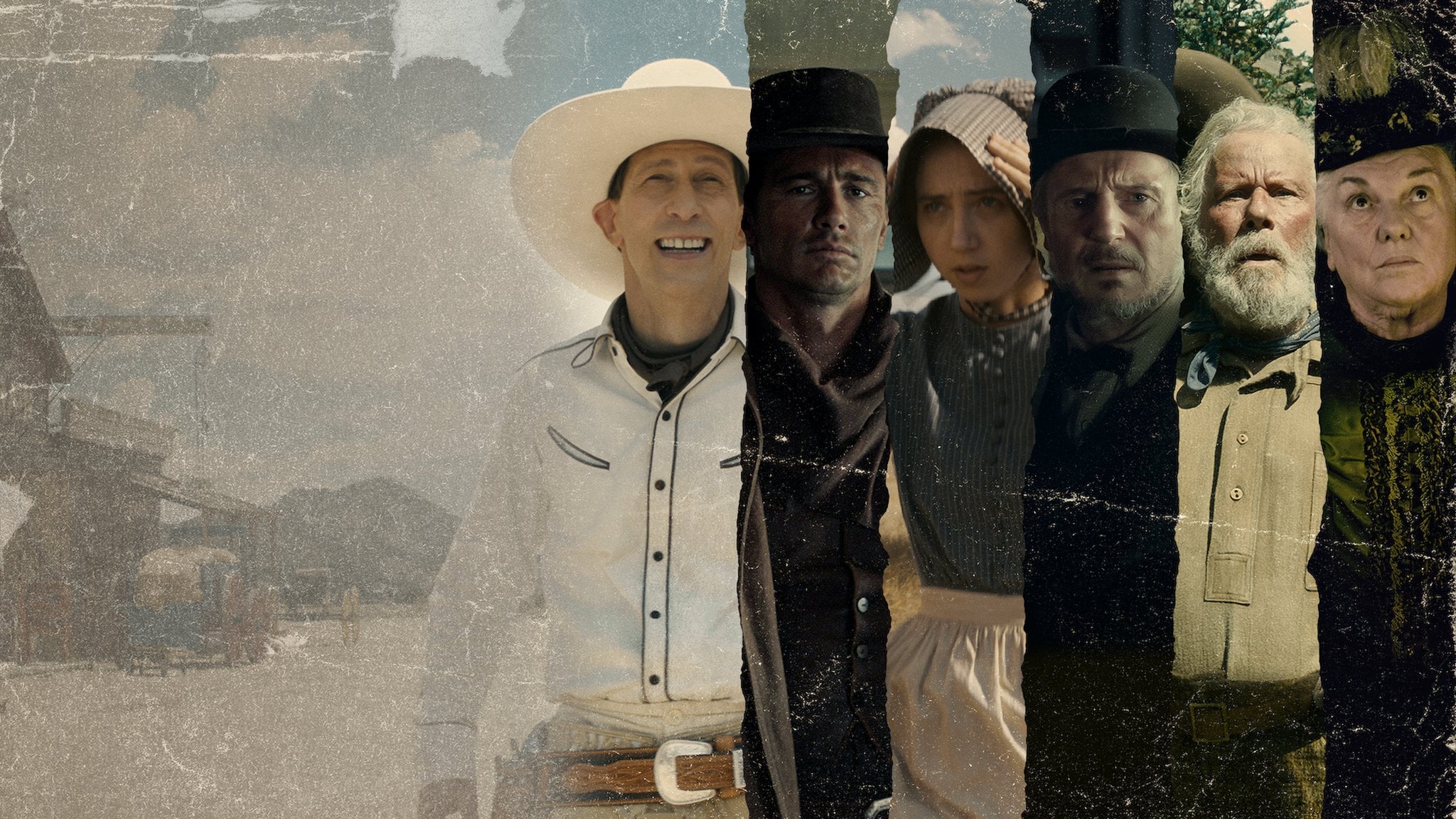
Where would America be without our love of getting rich quick? Of course the true cost of gaining such riches – such as exploiting and enslaving millions, not to mention polluting irreplaceable land to the point that it’s now uninhabitable – is never mentioned in the promotion of said dream. Yet, as the hangman pulls the lever and the screen cuts to black, “Near Algodones” proves to be a darkly humorous incrimination of the privilege and entitlement of the American man. It’s the audience’s expectation as much as the cowboy’s to predict another last minute save. Yet even standing at the gallows Franco clearly expects it all to work out in his favor again, joking with the weeping man next to him (“First time?)” and sizing up a young woman in the crowd of onlookers as a potential conquest. Dumb luck manages to save him from this initial hanging, but he’s quickly undone by another man with his same outlook on life – a cattle rustler who brazenly leaves Franco in the lurch to hang for his crime. After a bank robbery attempt gone wrong, Franco wakes up with a noose around his neck and one minute left to live but even then he still has no real sense of regret or remorse. He’s the picture of male swagger, surviving off of brazen action and the expectation that it will work out in the end because he’s special. In “Near Algodones” we follow another cowboy, played by James Franco, who similarly seems to have no concept of failure. That this traditional white hat singing cowboy figure is killed by a long-haired black hat cowboy who then sings a more country-style ballad is about as overt as the Coens get – it’s the death of the traditional cowboy ideal and the evolution of the modern western in a nutshell. That anybody could ever out-draw him doesn’t even cross his mind, that is until it quite literally passes through his mind in the form of a bullet through his skull. Self-assured, powerful and lethal, he’s so confident in his abilities that he even manages to break the fourth wall where none of the other characters seem to be able to. Scruggs, like the heart of the American myth, is the embodiment of can-do optimism.

It’s the most straight forward and obviously comic chapter of the bunch, but Scrugg’s lightning fast draw and merciless gunslinging keeps it from ever being too cheery. He comes across as a Gene Autry-esque white hat cowboy, who greets the audience with a rousing rendition of “ Cool Water” while riding through a canyon. The film opens of course with the titular Buster Scruggs, played to folksy perfection by Tim Blake Nelson. (This is your spoiler warning.) The first of these sins of Americana is entitlement. The Ballad of Buster Scruggs can be divided into three distinct themes, or “sins,” with a final chapter that ties it all together with a big macabre bow. But it’s through adhering to this traditional structure that The Ballad of Buster Scruggs so brilliantly sneak-attacks some of our traditional American values – a savage criticism on how we’ve managed to spin our worst qualities into something to aspire to.
Ballad of buster scruggs full#
Buster Scruggs is as much a parody of its genre, with its cartoon-like scenarios that mostly end in ironic and brutal deaths, as it is one of the more traditional westerns we’ve seen in years full of ruthless men at odds with the righteous gunslingers and optimistic frontiersmen, punctuated with everything from stereotypical Native Americans foes to passive animal witnesses.


The Coen brothers are known for their uncanny ability to highlight the merciless absurdism of the human condition, along with their ability to subvert genres.

Where better to contemplate mortality, morals, and human nature than through the lens of the wild west? It works so well it’s honestly surprising it hasn’t been done more often.
Ballad of buster scruggs movie#
While it’s exciting to get an anthology-style movie set in the American west, it’s content is certainly dark enough to qualify as yet another addition to the long history of horror anthology films The Ballad of Buster Scruggs feels just as at home in existential horror as does in the western genre. Where I’ve previously written about the America that never was, the Coen brothers took the concept one step further by shooting that dream out of the sky and then leaving it for dead in the desert. Don’t be fooled by the white hat, The Ballad of Buster Scruggs is surprisingly brutal.


 0 kommentar(er)
0 kommentar(er)
